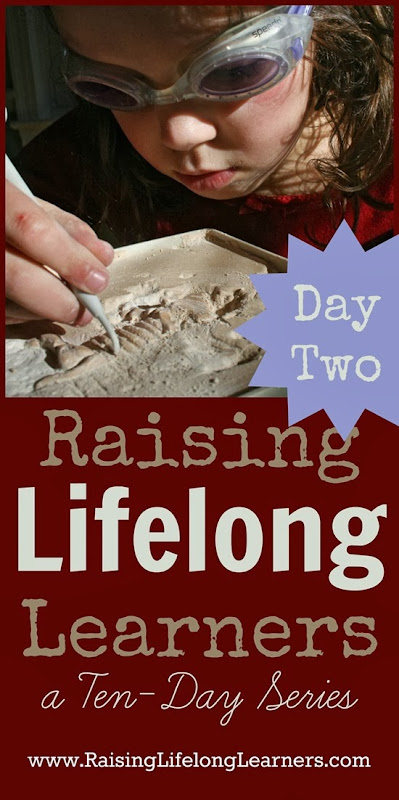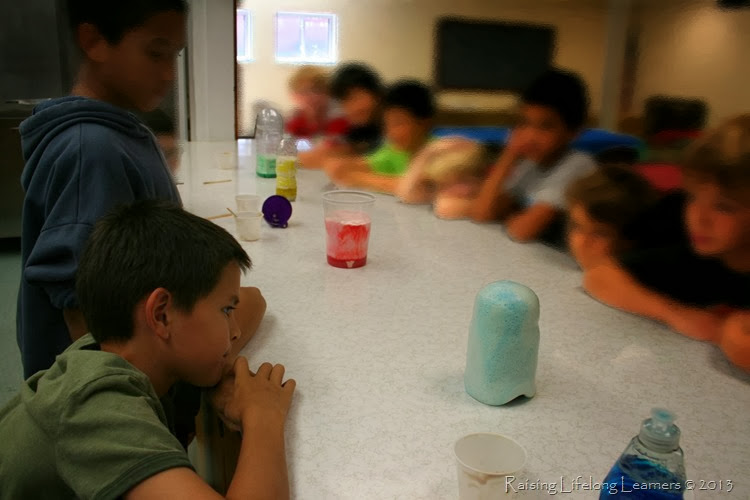Cultivating a Learning-Rich Environment
It’s the second day of a ten-day series here, and we’re exploring what it takes to raise lifelong learners. Today I’m exploring how to cultivate a learning-rich environment.
“My child just isn’t a reader.”
“My son has no interest in history.”
“My daughter loathes science.”
I’m saddened when I hear parents talk about their kids like this, as if the genetic propensity to learn is what it is, and there’s nothing anyone can do about it. I’m not a psychologist or a brain researcher, though I’ve worked with counselors and researchers alike, and have read widely in the field to better understand how kids learn. Despite my lack of PhD, I don’t believe that there is anything present at birth that determines a child will be a scientist, store clerk, reader, writer, or cook.
Yes, I firmly believe that children have different abilities and intellects. There are gifted children with exceptionally high IQs and children with disabilities that make learning new things incredibly challenging. And there are kids that struggle with both.
But, becoming a lifelong learner is not dependent on ability level. It’s a value we, as parents, can instill in our kids by cultivating learning-rich environments, and modeling the behavior of a lifelong learner.
What does a learning-rich environment look like?
A learning-rich environment is one that cultivates {and even celebrates} curiosity. Putting away the books to watch the plumber jack-hammer a hole into the basement floor {ugh}, experimenting with blocks and paints in the bathtub, digging for toy dinosaurs in a container of cornmeal… all of these things encourage children to think about their environment and ask questions.
Molly asked me, about a week ago, what would happen if we microwaved a banana. I told her to try it and draw or write what happens in her “science notebook.” She did, and felt validated in her curiosity and regards herself as a scientist-in-training.
Little things matter.
Talk, talk, and more talk.
Yes, little things matter. And sometimes the littlest things matter the most.
All of my kids like to talk – even the baby, who will babble loudly as he tries to be heard over the din. Talking, storytelling, and sharing plans is crucial to developing readers, writers, and thinkers.
Even if you’d prefer silence every now and then.
Listen to your kids spin their imaginations… and then encourage them to tell you more. And more. And still more.
As parents, we naturally encourage talk when our kids are really little, reporting to family and friends all the words our kids are saying {Isaac says hi, bye, mama, dada, and Molla…in case you wondered}, but this celebration of language acquisition tapers off as they get older.
In fact, I find myself telling my kids to “be quiet, for the love of God!” I want peace, and I forget that their spreading the wings of their imagination when they prattle on and on about what they’ll invent when they’re older and how they’ll be a homeschooling mom who creates a cure for all disease while making food from scratch for every meal and snack.
Read, write, and celebrate play.
Honestly, the best way to cultivate a learning-rich environment is to fill your home with books, share a love of the written word, and celebrate the play in which your child engages.
Easy, right?
Get down on the floor with them and act out a trip to the farm to pick up produce. Play with light and shadows. Read a book… and then 10 more, and bake a cake to go along with it. Play games. Ask your kids questions about the world, and listen to their answers.
And answer their questions. Take each one seriously, and think about your answer. Show them you value their thinking and you’ll teach them to value themselves as active learners.
Perhaps one of the best things you can do for your kids to help them grow into lifelong learners is to build a strong foundation in literacy. I’ll share some tips and strategies for encouraging early literacy skills tomorrow.
It’s your turn – what are some of the way you cultivate a learning-rich environment for your children? Share your ideas and suggestions in the comments. I know I can always improve, so I’d love to hear your thoughts.







